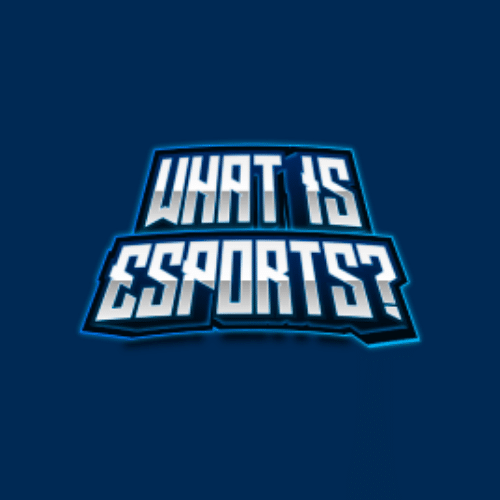The Rise of Esports: From Humble Beginnings to Global Phenomenon

Updated On: November 28, 2025 by 
Ever found yourself a tad bewildered amidst the electric buzz of esports, where each chat feels akin to a match in full swing that you’ve no part in? You’re not alone in that feeling.
Yet, it’s interesting to ponder how competitive gaming now beckons crowds on par with some time-honoured sports, isn’t it? Our feature is akin to a well-crafted treasure map; it aims to guide you through this enchanting digital domain—from its quaint pixelated dawn to the illustrious global standing it enjoys today.
Best lace up for an engaging yarn!
The Beginnings of Esports
The early days of competitive gaming saw players coming together for local LAN parties, where they would compete in games like Doom and Quake. As online gaming emerged, it allowed players to connect with one another across the world, laying the foundations for what we now know as esports.
Early competitive gaming
Early competitive gaming set the foundation for what we now celebrate as esports. Back in the day, passionate players crowded into arcades to challenge each other on iconic games like Pac-Man and Space Invaders.
It was more than just a way to pass time; it marked the birth of a community where skills were honed and rivalries born.
We gathered at local LAN parties, hauling heavy CRT monitors and clunky desktops to play together in person. These events became sacred rituals for us gamers, connecting over shared passions and competing fiercely across virtual battlefields.
Every victory scored and every high score achieved wasn’t just personal triumph – it sowed seeds for professional gaming industry that thrives today.
Local LAN parties
Local LAN parties were pivotal in the early days of esports, bringing gamers together for competitive play and camaraderie. Gamers would gather at someone’s house or a local venue, connecting their computers for multiplayer gaming sessions.
These grassroots events fostered a sense of community and laid the foundation for the competitive gaming culture we see today. LAN parties provided a platform for players to showcase their skills in games like Quake, Counter-Strike, and StarCraft, creating an environment that fueled the growth of esports.
LAN parties allowed gamers to engage in friendly competition while honing their skills and experiencing the thrill of playing alongside like-minded individuals. The social aspect of these gatherings also contributed to the development of lasting friendships within the gaming community.
Emergence of online gaming
The emergence of online gaming marked a significant turning point in the history of esports. As internet connectivity improved, gamers were able to compete with opponents from all over the world, transcending geographical boundaries.
This shift not only increased the scale and scope of competitive gaming but also laid the foundation for global esports tournaments and events.
Online multiplayer platforms such as Steam and Battle.net provided a virtual arena for players to showcase their skills, fostering a new era of competitive gaming. The ability to connect and compete with fellow gamers globally revolutionised the industry, propelling esports into mainstream recognition and paving the way for its phenomenal growth.
Professionalisation of Esports
Esports saw a significant shift towards professionalisation with the birth of organised teams and leagues, as well as the rise of major tournaments and events that drew in huge crowds and lucrative prize pools.
This marked a pivotal moment in esports history, setting the stage for its mainstream recognition and growth.
Birth of organised teams and leagues
Professionalisation of esports saw the birth of organised teams and leagues, paving the way for competitive gaming to be recognised as a legitimate sport. Gaming organisations were established, providing structure and support for gamers looking to compete at a professional level.
This development not only created opportunities for players but also laid the foundation for major tournaments and events that have become synonymous with esports today.
As more teams and leagues emerged, it sparked a new era in competitive gaming where players could showcase their skills on a larger stage. The growth of organised competitions brought about increased recognition from sponsors and investors, fuelling the expansion of esports into a global phenomenon.
Major tournaments and events
The professionalisation of esports led to the birth of organised teams, leagues, and major tournaments and events. These events have become significant milestones in the evolution of esports as a competitive industry.
- The International, an annual Dota 2 tournament, features a staggering prize pool which reached over $40 million in 2019.
- The League of Legends World Championship is a highly anticipated event that attracts millions of viewers worldwide and offers substantial prize money.
- The Evolution Championship Series (EVO) is a premier fighting game tournament where players compete at the highest level in games such as Street Fighter and Super Smash Bros.
- Intel Extreme Masters (IEM) hosts global esports events with multiple titles like Counter-Strike: Global Offensive, StarCraft II, and others, drawing top-tier players from around the world.
- The Overwatch League is a professional esports league for the popular team-based shooter game Overwatch, with city-based teams competing for the championship title.
- The Fortnite World Cup has gained widespread attention for its massive prize pool and the inclusion of various gaming platforms, attracting a diverse range of participants from across the globe.
- DreamHack is one of the world’s largest digital festivals featuring live concerts, tournaments in esports titles like CS:GO and Dota 2, and numerous other activities for gaming enthusiasts.
- Electronic Sports League (ESL) One is known for organising high-profile competitions in games like CS:GO and Dota 2 held at large venues across different countries to accommodate audiences globally.
Mainstream Recognition and Growth
The mainstream recognition and growth of esports have been propelled by the widespread availability of streaming platforms, which allow fans to watch their favourite players and teams compete in real-time.
This has also attracted significant sponsorship and investment from major brands, further cementing esports as a global phenomenon.
Impact of streaming platforms
Esports has experienced a significant boost in exposure and viewership due to the widespread availability of streaming platforms. Online platforms such as Twitch and YouTube Gaming have provided a global stage for esports competitions, allowing fans to watch live tournaments and matches from anywhere in the world.
This accessibility has enhanced the reach of esports, attracting a diverse audience of gaming enthusiasts who can engage with their favourite games and players in real-time. Additionally, streaming platforms have enabled professional gamers to build personal brands, connect with their followers, and showcase their skills beyond traditional media channels.
The rise of streaming platforms has democratised access to esports content, breaking down barriers for both passionate gamers and novice enthusiasts alike. As a result, the popularity of competitive gaming has surged, drawing attention from sponsors and investors seeking to capitalise on this rapidly growing industry.
Sponsorship and investment
Esports teams and leagues have attracted significant sponsorship and investment from various industries, showcasing the growing recognition and potential of competitive gaming. Major companies, including tech giants and beverage manufacturers, have recognised the global reach of esports and seized opportunities to sponsor tournaments, players, and teams.
This influx of financial support has enabled professional gamers to pursue their passion as a career while elevating the production value of esports events to new heights. With the rise in mainstream acceptance, substantial investments are being made in infrastructure, training facilities, and player development programmes to nurture future talent.
In recent years, the surge in esports viewership has caught the attention of both established brands seeking exposure to a younger demographic and newcomers aiming to capitalise on this burgeoning industry.
As a result, an array of sponsorship deals ranging from apparel partnerships to exclusive product placements have been struck with esports organisations. Furthermore, venture capitalists have injected substantial funding into expanding tournament prize pools and establishing sustainable business models within the esports ecosystem.
Global Phenomenon
Esports has rapidly gained global popularity, with a worldwide audience tuning in to watch competitive gaming events. It has also garnered recognition in the traditional sports world, solidifying its status as a mainstream phenomenon.
Worldwide audience and popularity
Esports has captured the attention of a global audience, drawing in millions of passionate gamers and curious novices. The popularity of gaming tournaments and leagues has skyrocketed as online streaming platforms have made these events accessible to fans across the world.
With major tournaments attracting massive viewership, esports has secured its place as a mainstream form of entertainment, with games like League of Legends and Dota 2 gaining widespread recognition.
The phenomenon extends beyond just tournament attendance; the growing number of dedicated fans following teams and individual players is evidence of the deep-rooted passion for esports on a global scale.
Recognition in traditional sports world
Esports has garnered increasing recognition in the traditional sports world, gaining legitimacy as a competitive sporting activity. Major sports organisations have started to invest in esports, recognising its potential and growing popularity among global audiences.
The inclusion of esports in mainstream sporting events has further solidified its status as a legitimate form of competition, paving the way for collaboration between traditional sports and the gaming industry.
The integration of esports into traditional sports opens up new opportunities for cross-promotion and mutual growth, establishing a bridge between two distinct but increasingly interconnected industries.
Conclusion
The evolution of esports from local LAN parties to global tournaments has been remarkable. Professional gaming organisations have played a pivotal role in the recognition and growth of competitive gaming.
The rise of esports as a mainstream form of entertainment has captivated audiences worldwide. Gaming’s transformation into a widely popular global phenomenon showcases its potential for continued growth and influence in the future.
FAQs
1. What are esports and how did they begin?
Esports, or electronic sports, have evolved from small video game tournaments to professional leagues where gamers compete globally in various gaming competitions.
2. Why have esports become so popular now?
The popularity of esports has soared due to the evolution of gaming history and technology, leading to more immersive games and interactive experiences that attract large audiences worldwide.
3. Are there different types of games involved in esports?
Yes! Esports cover a wide range of video games, including strategy games, fighting games, and team-based action titles that form part of diverse esports leagues.
4. How big is the global phenomenon of esports today?
Today’s esports scene has grown into a global phenomenon with millions of fans watching tournaments online and offline, turning it into a major part of modern gaming culture.


